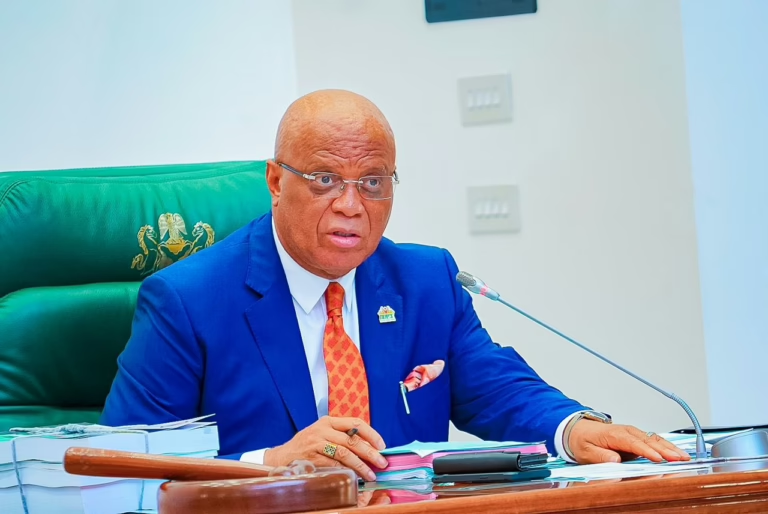Akwa Ibom State Government Denies Allegations of Salary Deductions as Tithes
The Akwa Ibom State Government has officially dismissed recent accusations claiming that 15% of its employees’ salaries are being withheld as mandatory tithes.
Controversy Sparked by Payslip Leak and Allegations
On Saturday, a report surfaced featuring payslips from several government appointees, aiming to challenge Governor Umo Eno’s assertion that none of his personal assistants earn below ₦1 million monthly. The report included statements from an anonymous appointee alleging that the governor enforces a compulsory 15% tithe deduction from their salaries, irrespective of their religious affiliations.
Government’s Response: Falsehood and Misrepresentation
In response, Rt. Hon. Aniekan Umanah, the Commissioner for Information, issued a statement from Uyo on Sunday, categorically labeling the report as “false, malicious, and irresponsible.” He described the publication as a deliberate fabrication intended to tarnish the reputation of the government and the governor, while misleading the public.
Clarifying the Nature of Salary Deductions
Umanah highlighted that the report inaccurately presented a remittance form alongside a partially obscured letter allegedly from the Office of the Secretary to the State Government. Upon verification, these documents pertain solely to statutory PAYE tax deductions applicable to certain political appointees, not tithes.
He elaborated that the governor’s aides fall into various categories, including Honorary Special Advisers, Senior Special Assistants, Special Assistants, Personal Assistants, and Project Supervisors, with monthly gross salaries and allowances ranging from ₦200,000 to ₦1,432,000.
Governor’s Salary Structure and Tax Obligations
Referencing Governor Umo Eno’s recent remarks at a Town Square meeting in the Ikono/Ini Federal Constituency, Umanah reaffirmed that a full Personal Assistant to the governor earns no less than ₦1 million monthly in combined salary and allowances.
He emphasized that the deductions seen in the alleged credit alert are statutory tax payments, not religious tithes. “All workers in Akwa Ibom State, whether political appointees or civil servants, fulfill their constitutional obligation by paying PAYE taxes to the State Internal Revenue Service (AKIRS). This is standard practice across both public and private sectors,” Umanah stated.
Ongoing Investigation and Call for Responsible Reporting
The Commissioner confirmed that the government has launched an investigation into the source of the misleading report and is taking necessary actions to hold those responsible accountable.
He urged the public to disregard the unfounded story and reassured citizens of the government’s dedication to transparency, accountability, and the welfare of its workforce.
Furthermore, Umanah cautioned media outlets against disseminating unverified information, warning that the state government will not hesitate to pursue legal action against purveyors of false news.
Contextual Insight: Transparency in Public Sector Salaries
In recent years, Nigerian states have faced increased scrutiny over salary transparency and deductions. For instance, Lagos State recently published detailed salary structures of its political appointees to promote openness. Akwa Ibom’s firm stance against misinformation aligns with this broader trend toward accountability in governance.


















0 Comments